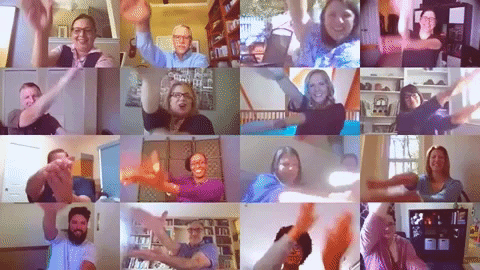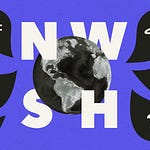Welcome to New World Same Humans, a weekly newsletter on trends, technology, and society by David Mattin.
If you’re reading this and you haven’t yet subscribed, then join 16,000+ curious souls on a mission to build a better shared future 🚀🔮
As lockdown eases here in the UK, a transition is on the horizon. We’re about to find out what the new normal looks like when it comes to work.
The picture is still unclear. Last week the prime minister urged UK citizens to get back to the office, saying they’d had enough ‘days off’ during lockdown. Meanwhile one of the country’s largest financial institutions, Nationwide, told its 13,000 employees that they’re permanently free to ‘work from anywhere’.
Two starkly different visions, then, of work in the 2020s. The same tension will no doubt afflict industrialised nations around the world.
Many employers, though, are converging on a settlement: a mixed model that will see staff in the office occasionally, and free to work anywhere for the rest of the time. That sounds a balanced compromise; it’s also a revolution. One that will have far-reaching effects on the way we live, how we do innovation, and the nature of citizenship.
So this week, notes on the transition towards remote work. I’ve examined the shift across four key dimensions:
Cities
Education
Creativity and innovation
Citizens and states
For each dimension, I’ve devised a short scenario built on a number of key predictions. In some future instalment of NWSH – I’m thinking 2025 at the earliest – I’ll revisit the claims I make this week. Each scenario features one tweet, chosen because it is a powerful illustration of one of the seeds, already growing in 2021, of my imagined future.
A final note: these scenarios are undeniably focused on rich, industrialised nations where office work is predominant and many can work from home. The World Bank estimates that in low income countries only one in every 26 jobs can be done remotely. Those countries, clearly, will travel different paths, and I hope to write about that in a later instalment.
Enough preamble; hit play!
If you prefer to read this week’s instalment, go here for the text version of New World Same Humans #59.
Links in this week’s instalment
🏙️ Cities
1. See these automated stores from Swedish retail brand Lifvs.
2. Artists, writers, and actors put unused commercial and retail space to new and innovative use.
3. The mayor of Miami used used Twitter banter to sell his city as an alternative to Silicon Valley during the pandemic.
4. The later 2020s sees a new wave of charismatic founders establish charter cities: independent city states intended to attract itinerant knowledge workers and reimagine government for the 21st-century.
5.

🎓 Education
1. Superstar academics look to break away and monetise their huge audiences, leveraging tools such this new creator platform for academics.
2.

💡 Creativity and Innovation
1. A now canonical study by the MIT Human Dynamics Laboratory found that communication is what sets the best teams apart.
2.
🧑💻 Citizens and States
At the intersection of much of the change discussed here is a single, powerful phenomenon. That is, the emergence of the Sovereign Individual.
Share Your Screen
Thanks for listening this week! One last request…
If this week’s instalment struck a chord, please consider forwarding the email to someone who’d also enjoy it. Or share this across one of your social networks, with a note on why you found it valuable.
David.



















Share this post